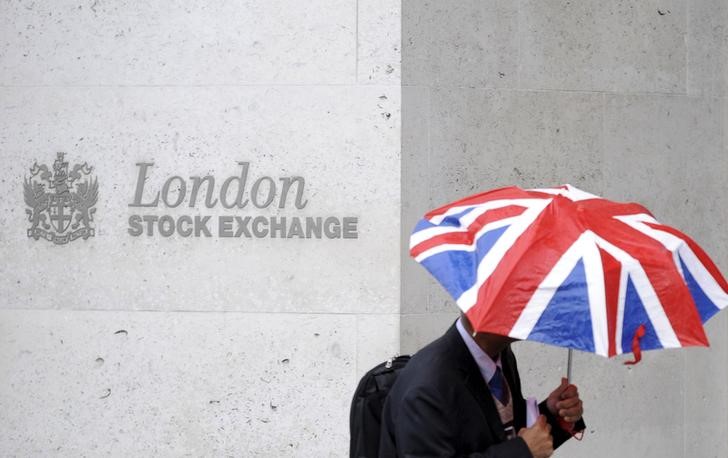By Saqib Iqbal Ahmed
NEW YORK (Reuters) - World stocks shrugged off weakness on Wall Street to cling to gains after hitting their highest level since mid-2015 on Thursday, bolstered by strong Chinese data that added to optimism about global growth and inflation.
The dollar lost ground against the yen and euro after U.S. labour data failed to reverse a downtrend that followed some of the biggest gains on record for China's yuan. U.S. Treasury debt yields slipped as investors grew uncertain about the incoming Trump administration.
MSCI's world index (MIWD00000PUS), which tracks shares in 46 countries, was up 0.4 percent. The index has been riding a wave of upbeat factory and service sector surveys out of the United States, Europe and Asia this week.
Growth in China's services sector accelerated to a 17-month high in December, a private sector survey showed.
The index, however, got no boost from Wall Street. U.S. shares fell after a report by a payrolls processor showed that U.S. private employers added fewer-than-expected jobs in December even as the U.S. labour market remained solid.
A drop in banks and discretionary stocks offset gains in technology names.
Thursday's ADP report precedes Friday's nonfarm payrolls data, which includes hiring in both private and public sectors.
"Overall it looks like investors will be in a wait-and-see mode ahead of the Labor Department report tomorrow," said Aaron Clark, portfolio manager at GW&K Investment Management.
The Dow Jones Industrial Average (DJI) fell 111.71 points, or 0.56 percent, to 19,830.45, the S&P 500 (SPX) lost 8.82 points, or 0.39 percent, to 2,261.93 and the Nasdaq Composite (IXIC) dropped 6.95 points, or 0.13 percent, to 5,470.05.
European shares steadied near their recent highs on Thursday, with Britain's top equity index climbing to a record high following a rally in homebuilders and miners.
Europe's broad FTSEurofirst 300 index (FTEU3) was little changed at 1,444.32.
China stepped into both its onshore and offshore yuan markets to shore up the faltering yuan, sparking speculation that it wants a firm grip on the currency ahead of U.S. President Donald Trump's inauguration on Jan. 20.
"All we're seeing is a continuation of the overnight move, which is dollar weakness," said Chapdelaine Foreign Exchange Managing Director Douglas Borthwick.
The dollar index (DXY) - which measures the greenback against a basket of six major rivals - was down 1.27 percent to 101.4, a three-week low.
U.S. Treasury debt yields fell for a third straight session, as investors grew uncertain about the incoming Trump administration and waited for more clarity about its policies before taking more positions.
Buying in Treasuries also accelerated after weaker-than-expected U.S. private sector payrolls data.
The U.S. 10-year note (US10YT=RR) was up 18/32 in price to yield 2.388 percent, compared with 2.452 percent late on Wednesday.
Oil prices gave up gains from earlier in the session after government data showed U.S. crude stocks fell sharply last week, but increased refining runs caused a surge in stocks of both gasoline and distillate inventories.
Brent crude (LCOc1) was down 0.14 percent at $56.32 a barrel, while U.S. crude (CLc1) was down 0.3 percent at $53.10.

The dollar's retreat helped push gold to its highest in four weeks. Spot gold